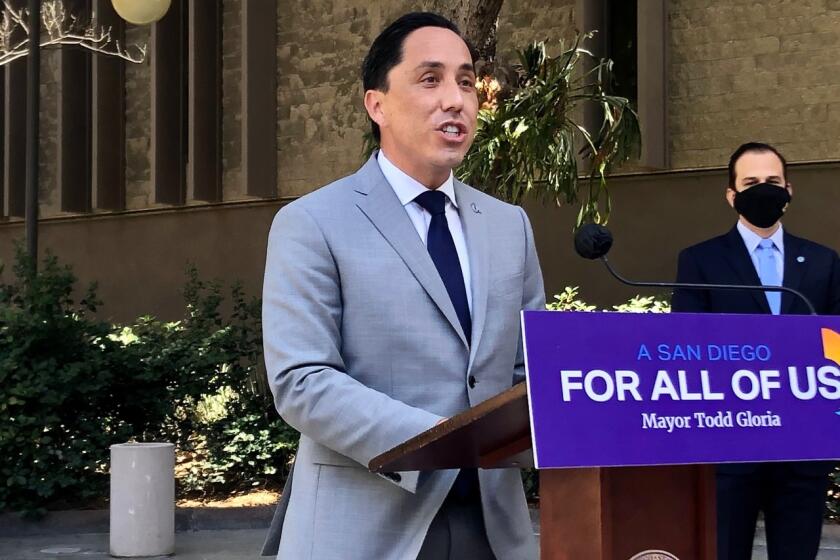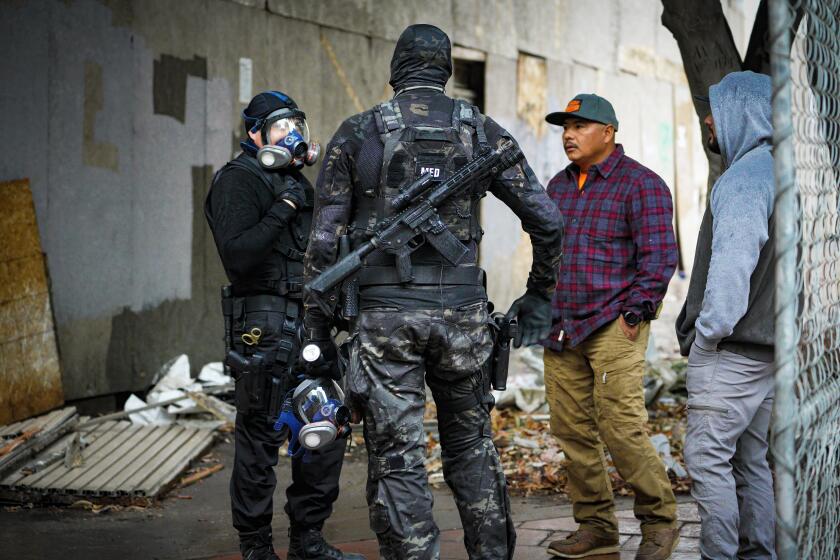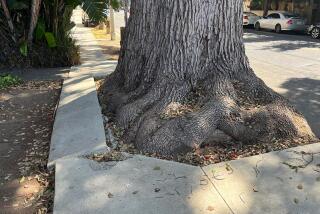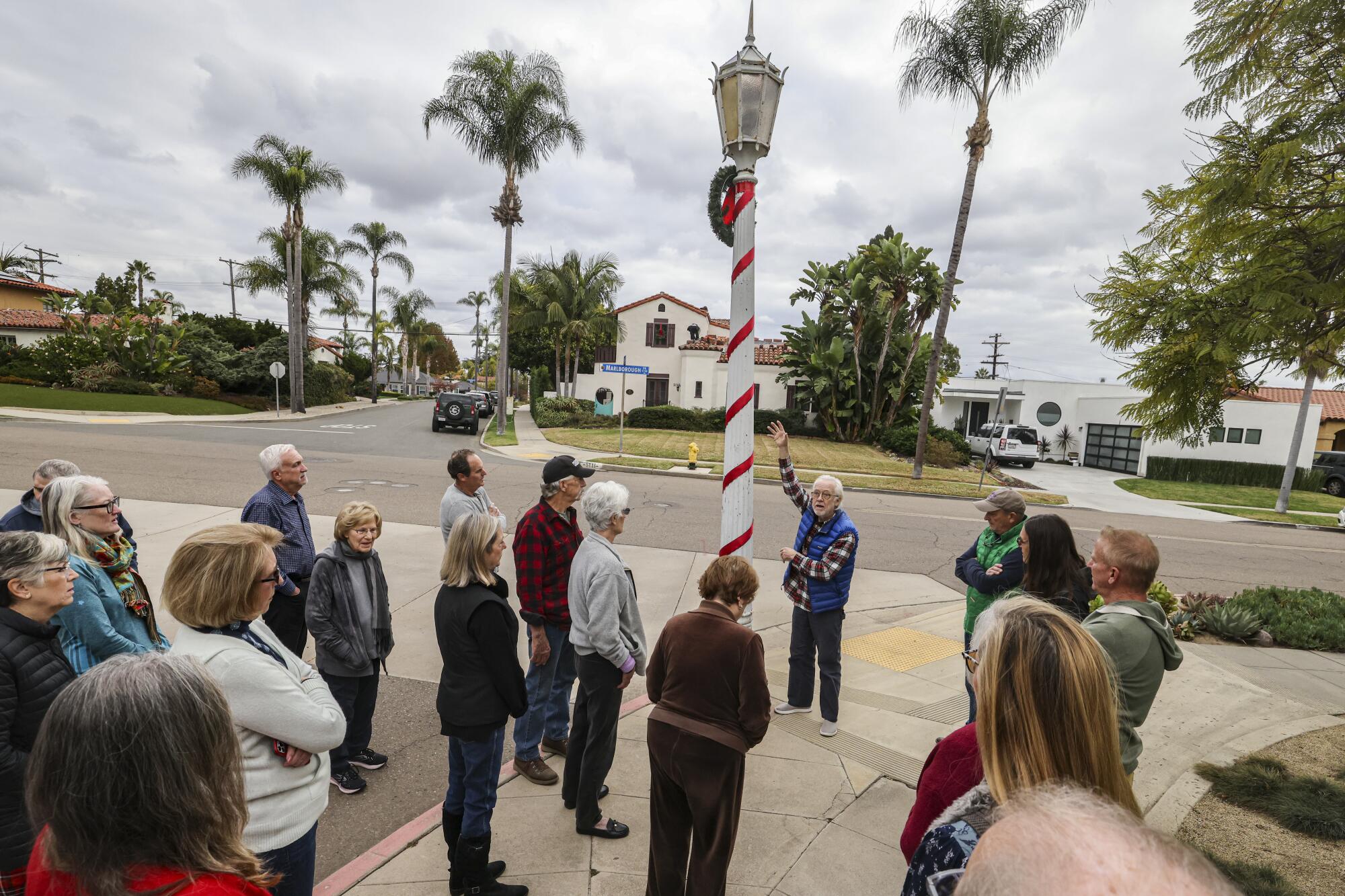
SAN DIEGO — A battle over San Diego’s plan to tear out more than 50 antique streetlamps in Kensington could be a warning sign to other communities with historic streetlights and a heads up to city officials about the potential for neighborhood backlash.
City officials say they will soon replace the antique lights in Kensington Heights, which date to 1926, with lookalike fixtures that are safer, more efficient and more reliable.
They say the antique lights, which some residents consider a neighborhood-defining feature, are covered in lead-based paint and use outdated circuitry that causes frequent outages.
Antique streetlights vary widely from neighborhood to neighborhood in how they function and were built — but it’s possible city officials will decide to remove them in other areas for similar reasons.
The street light project in Kensington is connected to a new campaign to accelerate streetlight repairs across the city, which have taken nine months on average in recent years. The goal is safer communities that look better, city officials say.
Gloria says the average of 272 days to repair street lights is unacceptable
A group of frustrated Kensington residents says they would prefer to have the antique lights retrofitted, which they claim would cost less than replacing them with new versions. The city says the replacement lights will cost $12,000 each, while the residents say the antique lights could be retrofitted for $5,000 each.
The residents formed a maintenance assessment district eight years ago for this specific purpose: raising money from individual property owners to spend on preserving and maintaining the antique streetlights.
So the residents say they were shocked to learn recently of the city’s plan to remove 56 antique lights — a plan they say was sprung on them without warning.
They also contend city officials skipped several key steps needed to get clearance from historic review panels and to comply with state environmental law.
The residents have hired attorney Susan Brandt-Hawley, who is known for having success in historic preservation cases.
“They have a new team at the city that doesn’t understand historic preservation,” Kensington resident Jim Kelley-Markham said. “Someone made the decision early on that these would be removed.”
Our San Diego Econometer panel considers if preservationists should continue to fight for the decaying structure
Kensington is under consideration for being declared an historic district, and Kelley-Markham said its streetlights are the most significant and prominent piece of its character and civic fabric — and are what make Kensington look and feel historic.
But a city report on the issue concludes the opposite.
“The existing Kensington lampposts are not historically significant on their own, they are a contributing feature to the larger potentially significant historic district in Kensington,” the report says. “The potential district is the historic resource, not the lampposts. City staff has been able to minimize impacts to the potential district by modifying the design to use historically appropriate streetlights.”
Kelley-Markham said the lookalike streetlights aren’t quite the same.
“The proposed new streetlights have the same basic shape, but the level of detail and design found in the historic streetlights is missing,” he said. “The most visible difference is that the new fixtures have only eight translucent panels instead of 16 translucent panels in each of the historic streetlights.”
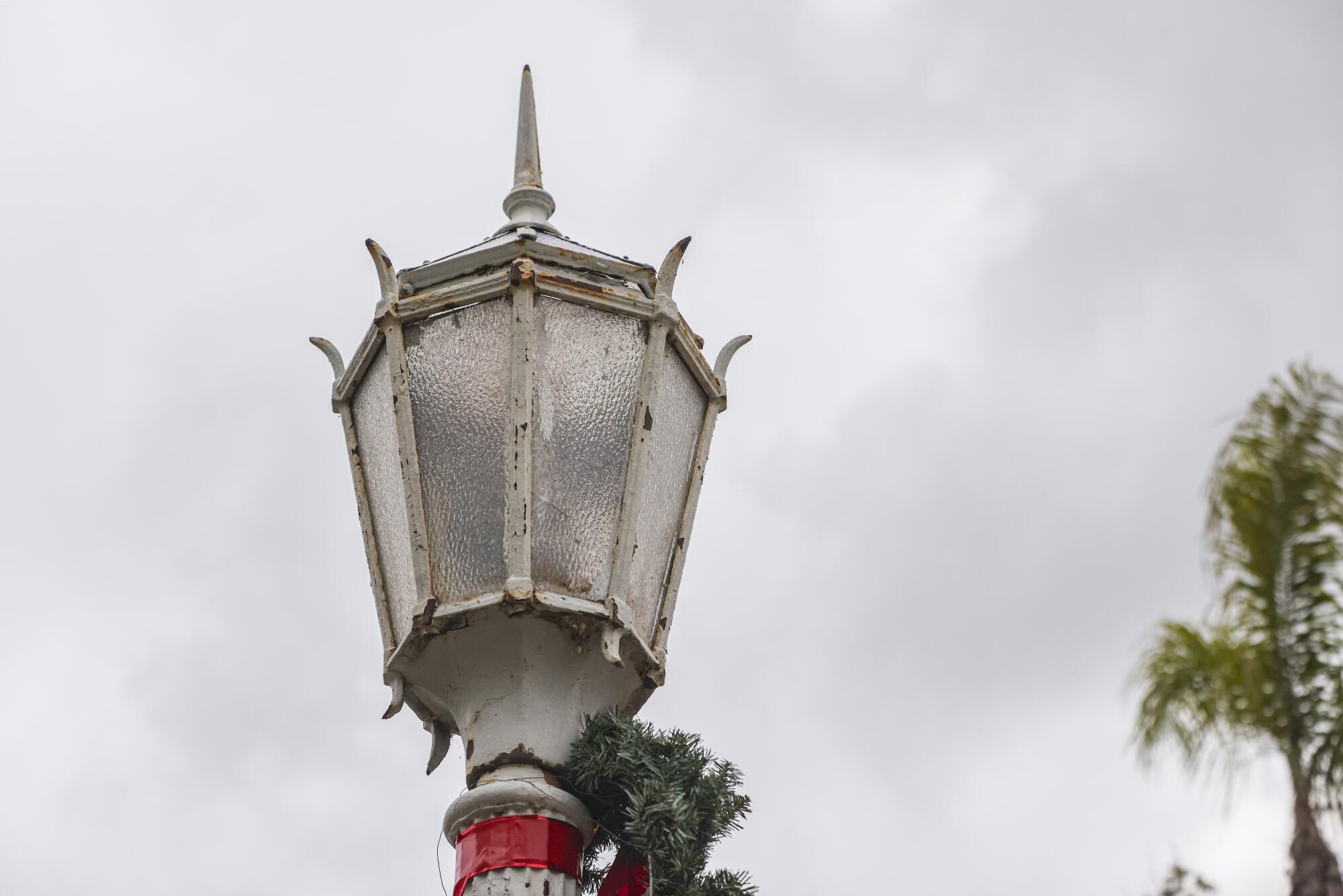
While antique streetlights vary widely from neighborhood to neighborhood, similar removals and disputes over them could happen elsewhere in the city.
Other neighborhoods with historic streetlights in at least some areas include South Park, Presidio Hills, Mission Hills, Talmadge, Burlingame, Point Loma, Pacific Beach, La Jolla Shores, Rolando Village and Hillcrest.
Bruce Coons, leader of the regional historic preservation group Save Our Heritage Organisation, said city officials are making a mistake in Kensington.
“These are character-defining features of the neighborhood,” he said. “We seem to be getting the run-around a little, and it’s clear the city missed some key procedural steps.”
Coons said preliminary plans to fix the streetlights in Kensington, where there are many outages, somehow morphed into plans to remove them without informing key community leaders.
“Originally, they weren’t talking demolition at all,” Coons said. “We’re hoping they’ll turn around and work with us. We all share the concerns about unreliable streetlights and safety, but we’ve got to follow the process.”
City officials contend they have followed the process, stressing that planning for the streetlight project began in 2020 and included consultations with the local planning group and leaders of the maintenance assessment district.
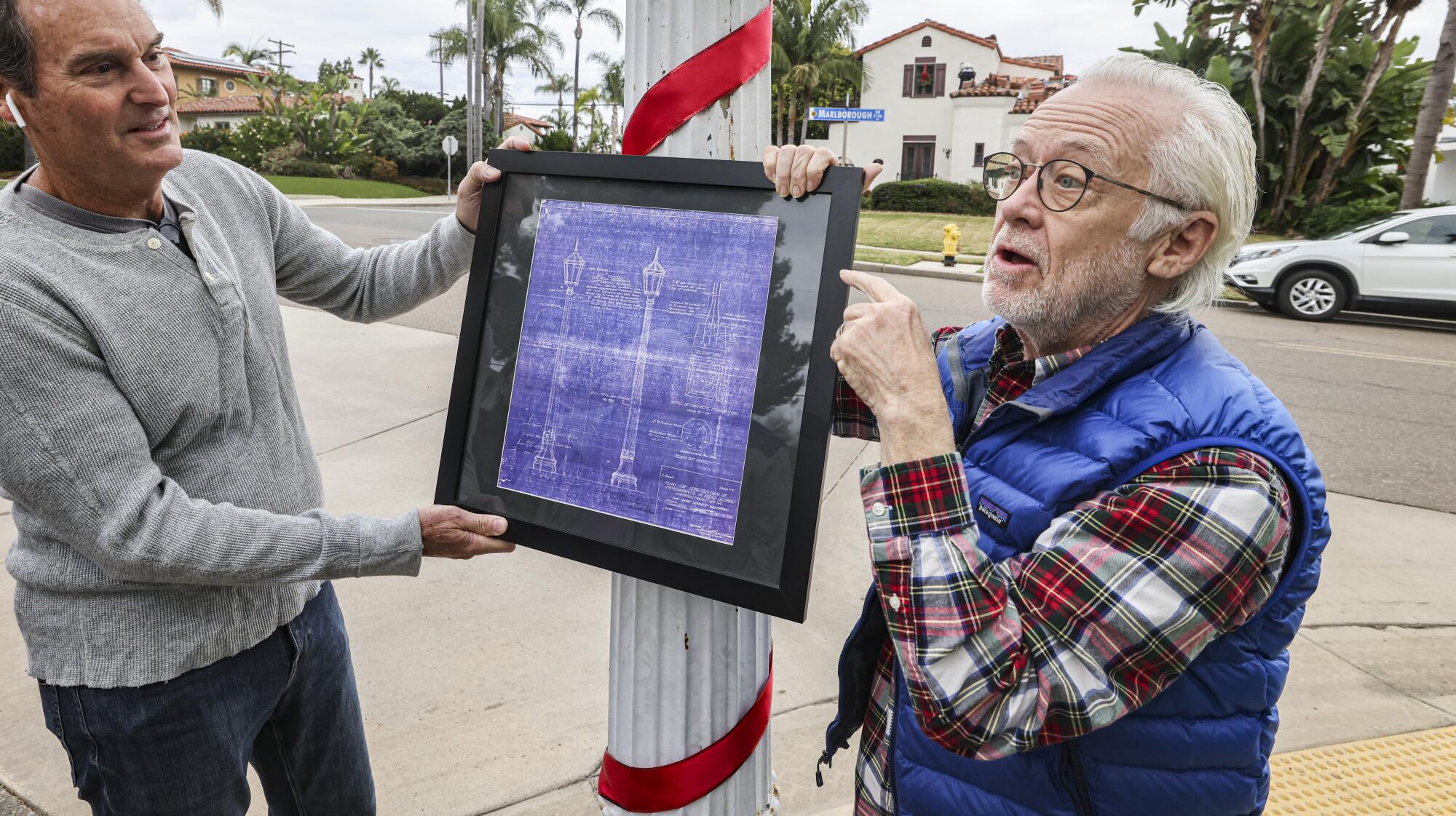
Luis Schaar, a city engineer, told Kensington leaders in several emails the city’s reasoning for replacing the lights.
“The design of this project was based on replacement for long-term benefit of the community,” he wrote.
Key reasons for replacement, city officials say, are that the poles of the antique streetlights are painted with lead-based paint, and the antique lights use unreliable series circuitry.
“Currently, the lights are on a series circuit, which means if one cable is impacted, all lights will go dark,” he wrote. “With the new lights, each light will be individually connected. If damaged in the future, only one light will be out until repaired.”
Schaar also said city officials haven’t been able to confirm the $5,000 estimate to retrofit the antique lights, which he said was secured by a resident who advocates keeping them — not by city officials.
The city has already awarded a contract for the removal of the antique lights and the installation of their replacements, Schaar said.
City Council President Sean Elo-Rivera, who lives in Kensington and represents the area, said Friday that he supports the city’s plan.
“The new streetlights planned for the Kensington neighborhood address concerns that residents have had for over a decade,” he said. “With approval from community representatives during the planning process, this is the best long-term solution for efficiently maintaining lighting and safety while preserving the neighborhood’s unique community character.”
A city spokesperson, Antony Santacroce, said city officials have handled the process methodically and with the primary goal of matching the character of the antique streetlights, which required several design modifications.
“The project has been in design since 2020 where we went through extensive coordination with the community group and the maintenance assessment district to arrive at the two final street light designs,” he said.
More to Read
Sign up for Essential California
The most important California stories and recommendations in your inbox every morning.
You may occasionally receive promotional content from the Los Angeles Times.
